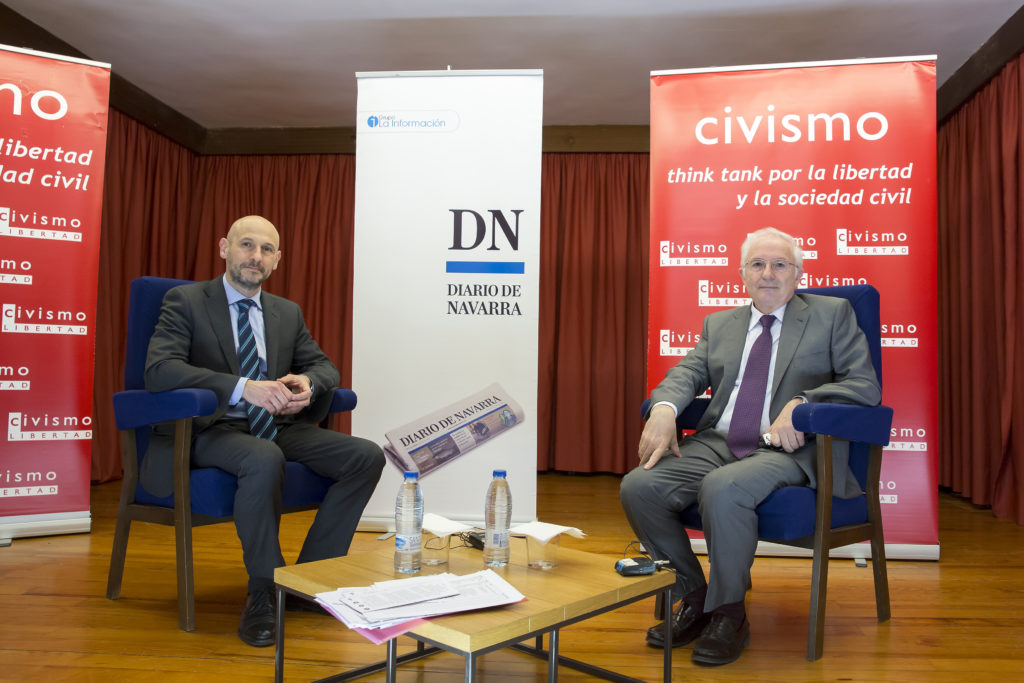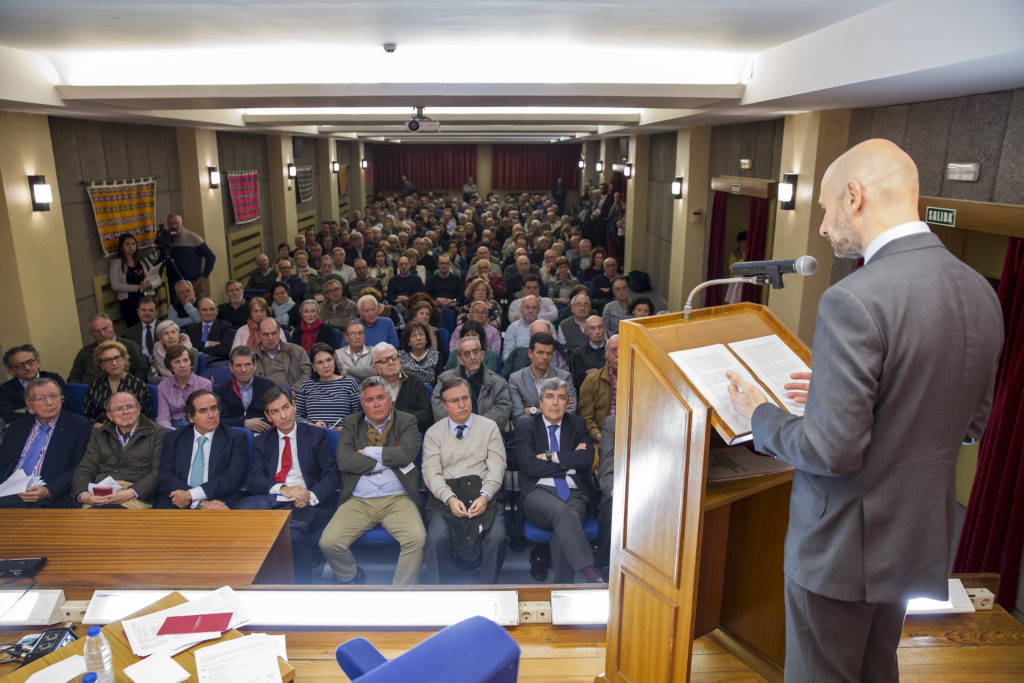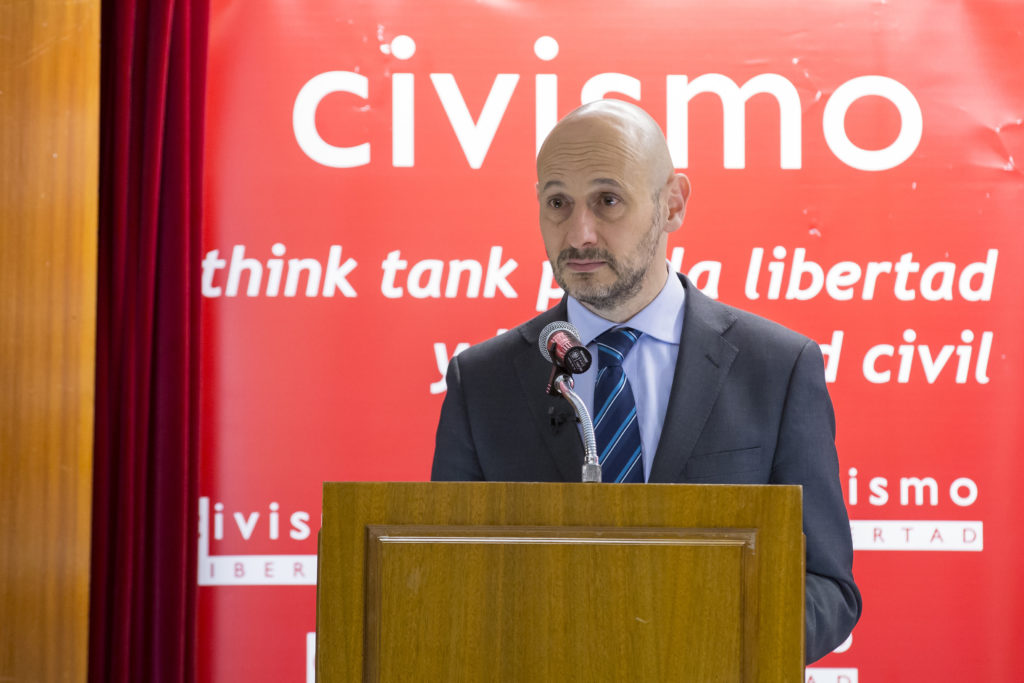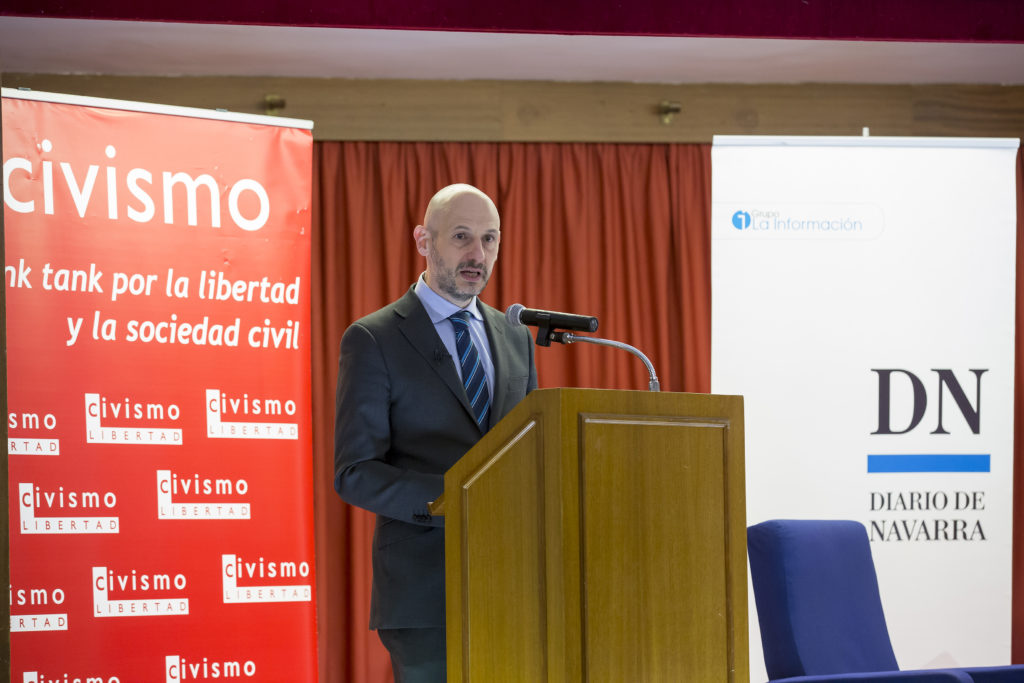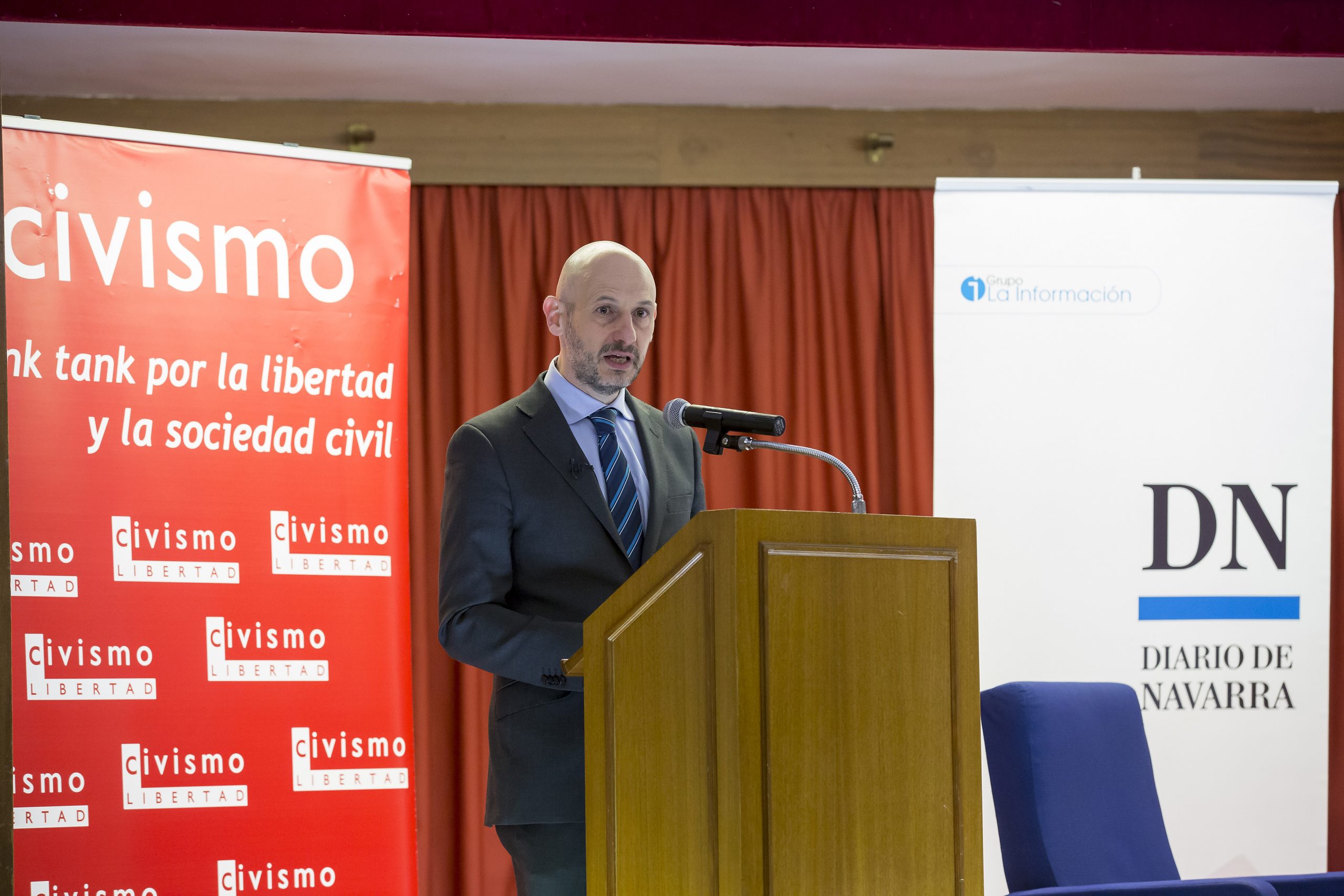
Navarra in Liberty: Basque language and coexistence
Civismo held a conference in Pamplona, as part of its Navarra en Libertad cycle, focused on Basque language and coexistence. It was given by Iñaki Iriarte, who acknowledged that «language policy is a recurrent source of controversy». For this reason, he emphasised the it is important that society opens up this debate, «not in order to divide us further, but with an integrating and conciliatory will», since, to his mind, coexistence in the Comunidad Foral is at stake. «If we don’t succeed, we are on our way to becoming Flemish and Walloons», he illustrated, alluding to the sometimes aggressive rivalry between the two Belgian communities.
Afterwards, he reviewed Basque history in Navarre, «which has never been homogeneous in the use of languages, and where Castilian has never been imported, but always autochthonous». In this analysis, Iriarte retraced back to Antiquity («then not all Basques spoke it, nor were all those who spoke it Basques»), passing through the Modern Age, when «its retreat is common to other European languages such as Breton or Welsh», until 1935: just before the arrival of Franco’s regime, barely 17% of the population used it, a percentage that, when the regime ended, would have fallen to 11%. «Euskera was, therefore, a minority language when democracy began», he summed up, adding that it would be » an absurdity» for language policy to have the objective of restoring past times, since it would mean «punishing the present for the sins (imaginary or real) of the past».
Referring to the present of the Basque language, Iriarte pointed out, referring to the 6th Sociolinguistic Survey, that 77% of Navarrese people currently do not speak it. In the non Basque-speaking area of the Community, this proportion rises to 98%, which is why there is no public education in this language. Furthermore, Euskaldunisation is concealing a «deficit» of knowledge: only 22% of speakers read Euskera texts, and 42% admit not to do so due to reading problems. In this regard, Iriarte underlined: «The fact that one language is discriminated against is an injustice, but that one speaks less than another cannot be considered an aggravation».
In this sense, he explained that the use of Euskera has increased slightly since the 1980s in the workplace and, above all, in municipal services, but not at home. This made him wonder whether a complete Euskaldunisation of the school population and the Administration would ensure a wider use. Iriarte concluded that no, given that » loss of a language is possible even if it has the status of official language, as happened with Latin».
«The linguistic rights of Basque speakers have become linguistic duties for the rest of Navarrese society». Iñaki Iriarte
«For Basque nationalism, Euskera’s minority character is an anomaly perpetrated by some guilty parties that must be rectified (exclusively promoting the educational model D among Spanish speakers, rewarding their knowledge in order to achieve access to foral administration or public competitions, by subsidising the media that use it), but this normality has never existed», Iriarte remarked.
Thus, the lecturer at the Basque University (EHU/UPV) denounced that «the linguistic rights of the Basques have become linguistic duties for the rest of the society of Navarre, which does not despise Euskera but which, in forty years of democracy, has not considered it important to learn it». In other words, «you have the right to speak whatever you want, but others should not have the duty to understand you».
On this basis, the speaker outlined the guidelines that would articulate an alternative language policy to the current one, which «by only promoting the teaching of one of the languages of the territory, it confronts society for its different access to educational, cultural and labour resources». Among these pillars are respect for individual freedom, for cultural reality («it cannot be assumed that 77% of the population needs to be normalized, and the task of governments is to optimize resources for the provision of services, and not to change that reality»), as well as to promote language among its speakers instead of trying to extend it among those who do not know it and are not interested in learning it.
Finally, the rapporteur cited as an example of politics to imitate that of the Italian Tyrol, where, from time to time, citizens have the opportunity to declare their linguistic identity, so that their dealings with the administration take place in that language. Furthermore, the proportion of speakers of each of them is used as a criterion when offering public services and jobs.
«The rights of the minority must be protected while not harming the majority,» concluded Iriarte.
